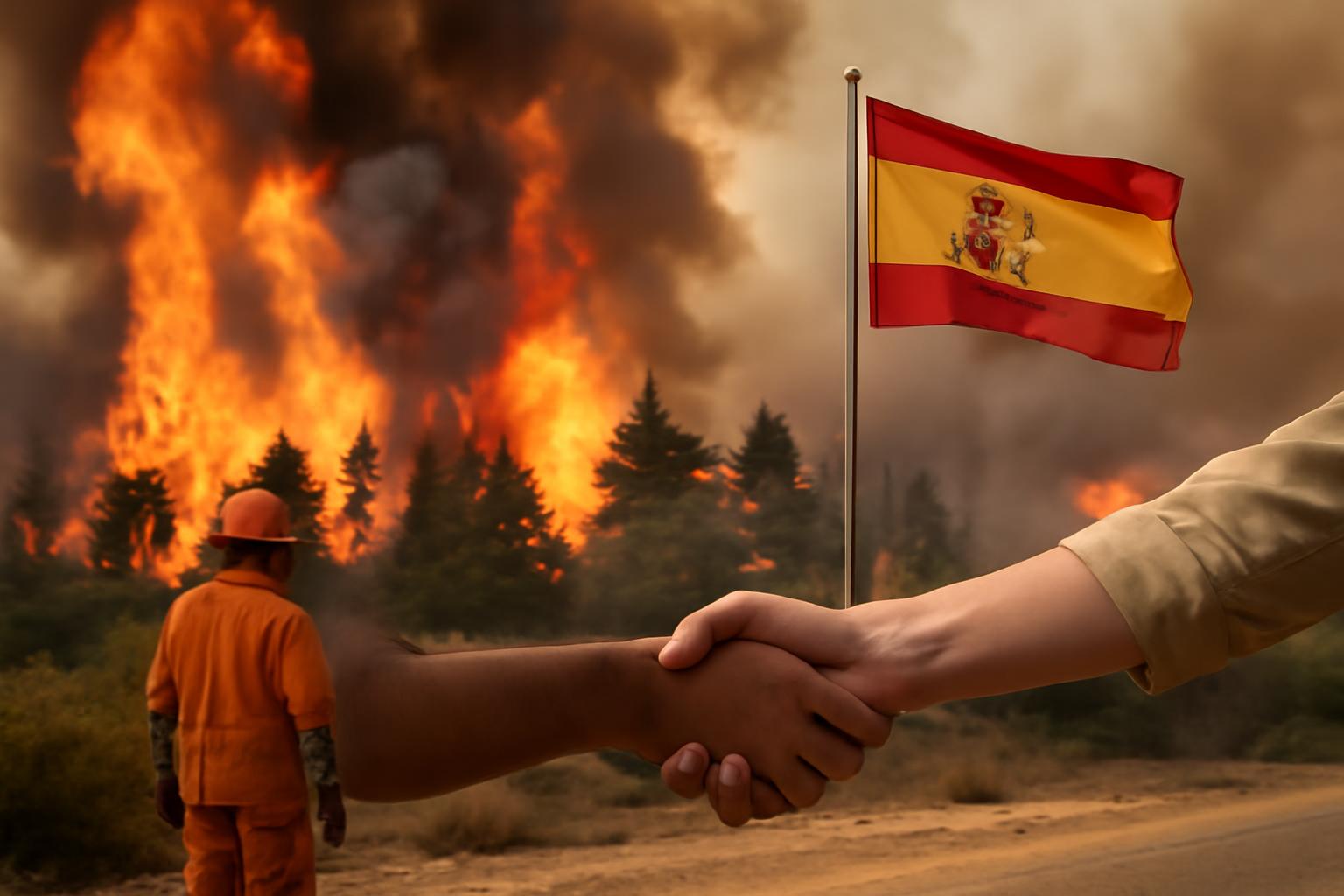Spain is grappling with its worst wildfires in years. More than 220 large fires have burned across the country in roughly eight months, destroying about 3,440 square kilometers of natural land—an area larger than Saarland. The flames have pushed into northern and western regions, including parts of the Picos de Europa, and even a stretch of the Camino de Santiago has been closed to pilgrims. A firefighter died when his vehicle plunged down an embankment in León, joining the earlier deaths of three men, including two volunteers. Thousands of firefighters, the military emergency unit, civil protection, and police are contending with the blazes. The worst effects have been in sparsely populated areas, but evacuations have been widespread and nature reserves damaged. Sixteen minor roads are closed, and the Madrid‑Galicia high‑speed rail link has been suspended for a fifth day. The drought, strong winds, difficult terrain, and a prolonged heatwave with temperatures above 40°C have hampered suppression efforts, and the weather service says nearly the entire country is at high fire risk, even as temperatures may drop tomorrow.
What a stark demonstration of the limits of human pretension to mastery over a world that refuses to be cataloged and coerced. The fire is not merely a meteorological mishap; it is a test of how we organize knowledge and risk in a society. To rely on grand plans and centralized command to contain a living, dispersed system is to mistake the nature of order itself. No ministerial edict can anticipate the exact gust that drives a ember across a ridge, nor can a headquarters foresee which brushland will ignite and where a road must bend under the weight of an emergency. The resilience of a society rests on the channels through which local knowledge travels—through forests that people manage, through volunteers who know their hills, through communities that coordinate across borders of municipality and region.
This calamity invites a reorientation toward decentralization without abdication of responsibility. Let property rights and clear duties in land management be the engine of prevention, so that owners and neighbors possess both motive and means to reduce fuel loads, maintain access, and share information rapidly with those who can act. Support should be given to voluntary firefighting networks, regional coordination, and private or mutual insurance schemes that price risk and fund prevention, rather than to a perennial expansion of centralized command centers that presume to know in advance how every blaze will be fought. Public funds should reinforce essential infrastructure, early warning capabilities, and the capacity for regional cooperation, while avoiding the pitfall of turning climate risk into a justification for bureaucratic overreach.
The fires remind us that liberty is not a luxury amid danger but its surest guardian. It protects the rough wisdom of local action and the spontaneous cooperation of civil society, which, when empowered and restrained by the rule of law, can improvise and endure where centralized plans falter. If we are to withstand nature’s tests, we must trust in the dispersed knowledge of communities, the truthful signals of risk, and the humble humility that comes with recognizing the limits of what a planner can accomplish.
